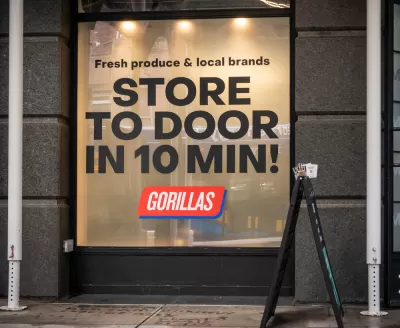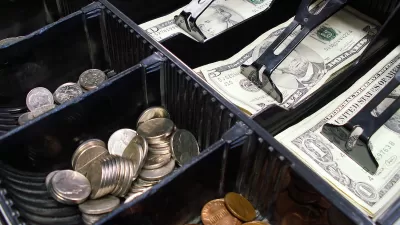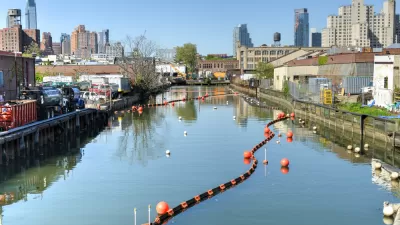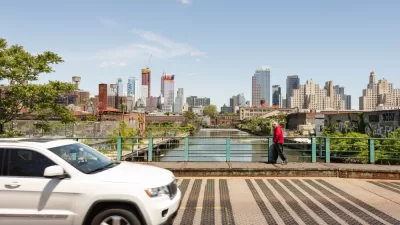After the city instituted a ban on cashless businesses, calling the model discriminatory against poor New Yorkers who rely on cash transactions, a study found that more than 80 percent of new fast-delivery stores don’t accept cash.

A new style of fast-delivery grocery stores is causing concern among New York City lawmakers, who in 2020 banned cashless businesses, saying they “discriminated against low-income consumers, who are less likely to have a credit card or bank account.” Yet a survey from Councilmember Gale Brewer’s office shows that 83 percent of fast-delivery operations do not accept cash payment, reports Arun Venugopal in Gothamist.
Although the Department of Consumer and Worker Protection says they “actively enforce” the policy, “Brewer said the city is failing to regulate this growing industry, one that is backed by venture capital and has been hyped in national media as the future of post-pandemic commerce. She complains the businesses, sometimes referred to as “dark stores,” flout other city laws, such as pricing-display rules, governing the commercial sector.”
According to Venugopal, “The city's ban against cashless businesses excludes purchases made online, by phone or by mail. But Brewer’s office notes that some locations do business both ways – taking remote orders and conducting in-person transactions – and need to follow the law barring cashless businesses as well as other city ordinances.”
Other councilmembers expressed concerns about data privacy and the threat these businesses pose to small, mom-and-pop stores in the city. “Councilmember Christopher Marte, whose father operated a bodega, is raising other concerns. He says the pandemic has caused numerous storefront vacancies in Chinatown and the Lower East Side, and worries that the small shops cannot stand up to the new fulfillment stores.”
FULL STORY: New wave of fast-delivery stores spark worries they threaten bodegas, isolate poor New Yorkers

Trump Administration Could Effectively End Housing Voucher Program
Federal officials are eyeing major cuts to the Section 8 program that helps millions of low-income households pay rent.

Planetizen Federal Action Tracker
A weekly monitor of how Trump’s orders and actions are impacting planners and planning in America.

Ken Jennings Launches Transit Web Series
The Jeopardy champ wants you to ride public transit.

Crime Continues to Drop on Philly, San Francisco Transit Systems
SEPTA and BART both saw significant declines in violent crime in the first quarter of 2025.

How South LA Green Spaces Power Community Health and Hope
Green spaces like South L.A. Wetlands Park are helping South Los Angeles residents promote healthy lifestyles, build community, and advocate for improvements that reflect local needs in historically underserved neighborhoods.

Sacramento Plans ‘Quick-Build’ Road Safety Projects
The city wants to accelerate small-scale safety improvements that use low-cost equipment to make an impact at dangerous intersections.
Urban Design for Planners 1: Software Tools
This six-course series explores essential urban design concepts using open source software and equips planners with the tools they need to participate fully in the urban design process.
Planning for Universal Design
Learn the tools for implementing Universal Design in planning regulations.
Heyer Gruel & Associates PA
Ada County Highway District
Institute for Housing and Urban Development Studies (IHS)
City of Grandview
Harvard GSD Executive Education
Toledo-Lucas County Plan Commissions
Salt Lake City
NYU Wagner Graduate School of Public Service





























